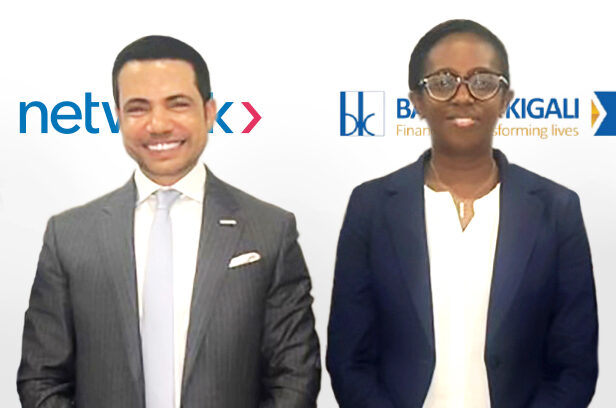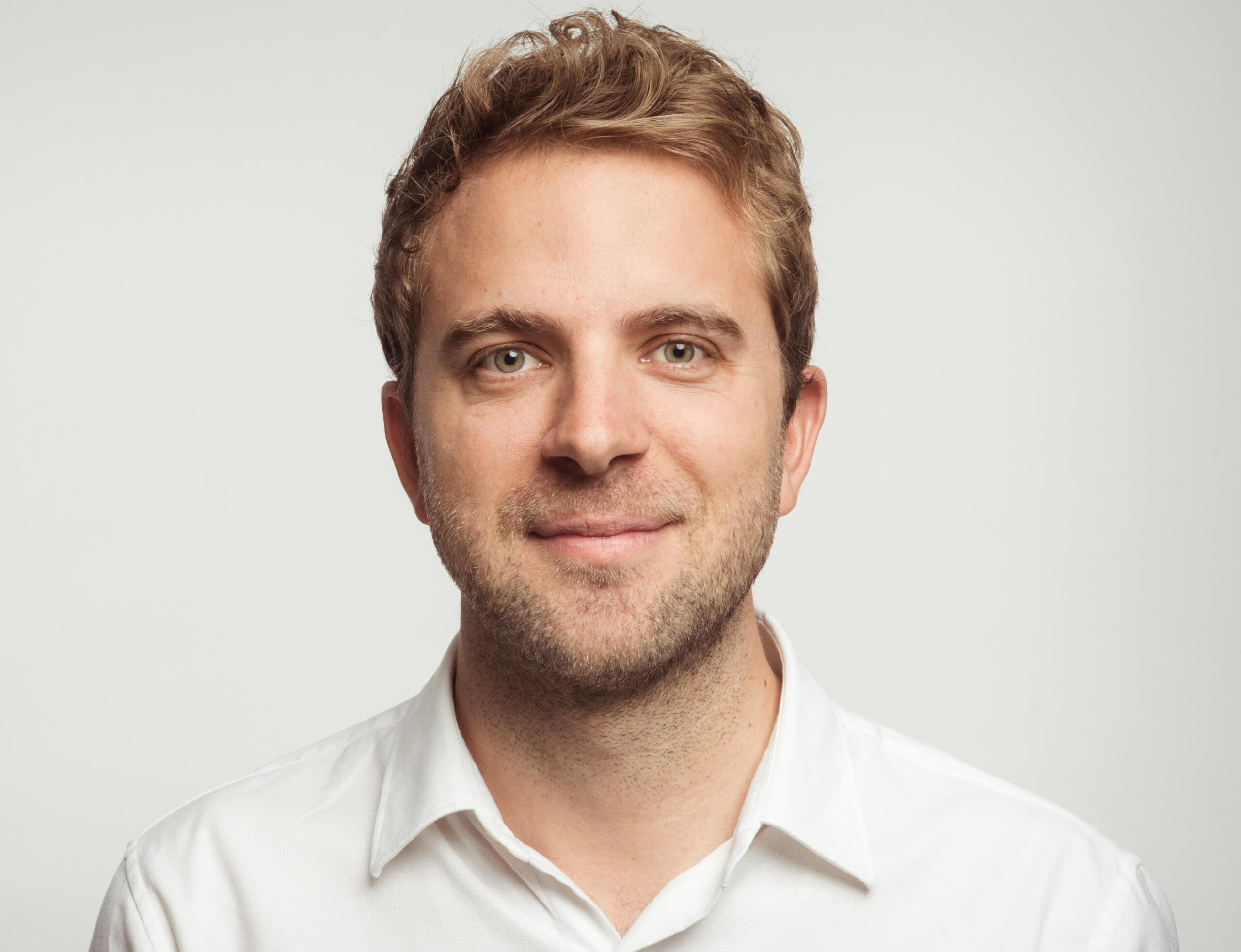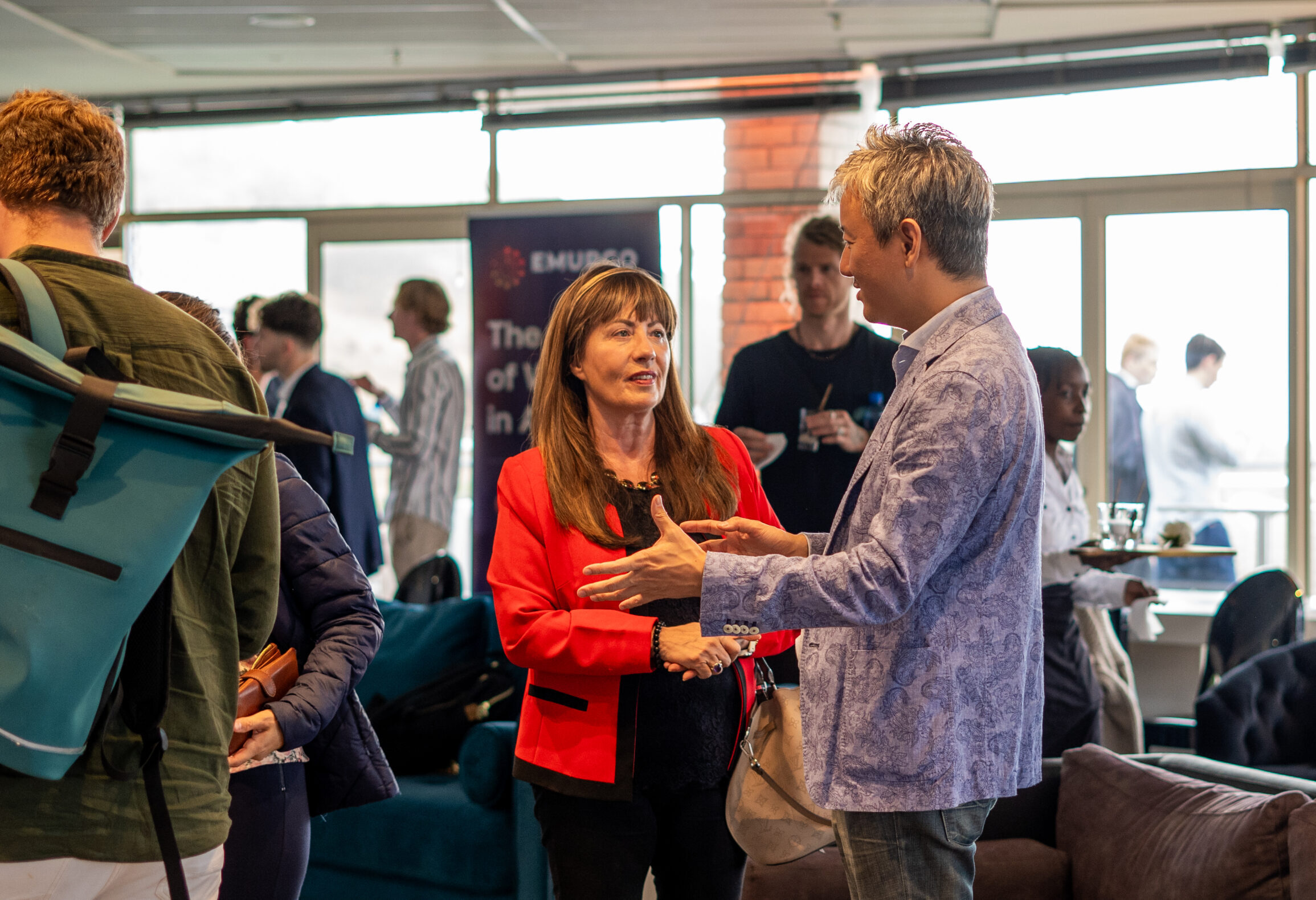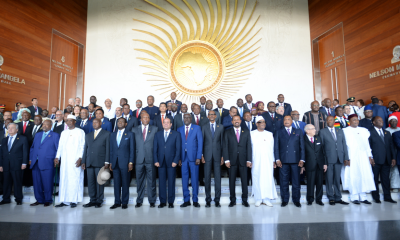Technology
Leaders of Africa’s digital infrastructure investment in a discuss

Leaders from MTN, C-Squared, Seacom and Convergence Partners discuss the critical issues ahead of their speaking roles at TMT Finance Africa in Cape Town 2019
CAPE TOWN, South Africa, March 7, 2019 — Digital and broadband infrastructure investment is clearly one of the top priorities for Africa’s key telecom operators and investment firms in 2019. In this article, leaders from MTN, C-Squared, Seacom and Convergence Partners discuss the critical issues ahead of their speaking roles at TMT Finance Africa in Cape Town 2019 http://www.TMTFinance.com/capetown
With the huge and increasing demand for data and increasing opportunities for 5G and fibre, digital communications companies including mobile and fixed operators, as well as a range of digital infrastructure specialists and investors, are targeting significant investments in new digital infrastructure.
Byron Clatterbuck, CEO Seacom, one of Africa’s leading submarine and terrestrial broadband operators, sees a really opportunity in making the case for fibre in Africa: “Fibre penetration is still very low in most African countries, so huge opportunities exist to get involved in the rollout of intra-regional projects, national projects, and even international subsea infrastructure projects. The global cloud services companies are now putting Africa on their development roadmap, and committing significant investment to several African markets.”
For Clatterbuck, this presents a big opportunity for other investors to leverage these investments and to cooperate with these global giants in delivering new services to the business and home markets.
Envir Fraser, CSO & Partner at Convergence Partners, an impact investment management firm focused on the telecommunications, media and technology sector in Africa, expects broadband to continue offering investment opportunities as the need for high quality broadband increases with step changes in prices. “This does mean that the opportunities are shifting from pure greenfield builds and opportunities to brownfield expansion and consolidation in the sector. The needs for “big pipes” to realise the 5G reality will also need increased investment in connecting towers and high sites to high-speed fibre or wireless backhaul networks”, says Fraser.
Working with governments on digital infrastructure investment
To help maintain a high level of investment, Kholekile, Ndamase, Executive: Group Mergers and Acquisitions at MTN, Africa’s biggest mobile telecommunications operator, warns Governments should have a careful plan when considering the licensing questions such as coverage obligations vs license fees vs a fund to finance rural connectivity.
“If government could forego the immediate remuneration of a license fee and opportunity costs of localisations, but instead placed reasonable coverage obligations on operators, it may be more beneficial in the long run to have all their citizens connected to digital and have them participating in the digitally-enabled economy. Making more spectrum available in certain markets would also reduce network congestion and Capex expenditure which will allow the much-needed capital to be spent in the more underserved areas”, Ndamase explains.
Expect consolidation in digital and fibre infrastructure
Consolidation in the sector is also to be expected, according to Alexander Kiel, CFO, at CSquared, the Google-backed African fibre network operator. “Fibre, like other infrastructure, is a game of scale, we do expect some consolidation to happen over time, with it most likely to start with transfer of management of public fiber assets to private operators.” Over time, as fibrecos increase in scale and expertise, Kiel also expects to see more sale and lease-back deals between the fibrecos and the mobile operators.
For Seacom’s Clatterbuck, “whether it is MNOs trying to bring together a number of African “OpCos” under one brand with synergies at the group level, or it is “fixed” fibre operators consolidating to control and manage as much of the end-to-end network as possible, there is no shortage of M&A and funding opportunities in Africa. “Consolidation will continue as markets grow and possibly shrink, and as global players look for market entry vehicles going forward,” he says.
Who will be leading fibre investment?
In the next 12 to 18 months, CSquared’s Kiel expects a number of greenfield projects to come out, with multiple roll-outs, “especially in the metro areas where there is still a gap… these deployments will be driven by mobile operators and independent fibrecos”, he comments.
In about five years time, Convergence’s Fraser foresees a market with a limited number of scale players offering a broader set of offerings to operators. He expects “a shift to customer focused services and product offerings as well as continued increase in bandwidth speeds.”
As for MTN’s Ndamase, “fibre and 5G will open up a whole new experience for consumers with particular benefits will not necessarily be seen with the way we currently experience the digital world.” He reckons industries such as Autonomous Vehicles, Automation of business processes, VR & AR and a whole host of other industries that are yet to appear will primarily benefit from this shift.
Leaders from the largest African telecom, media and technology companies, investment banks and investors are meeting to assess the latest investment opportunities at the annual TMT Finance Africa in Cape Town 2019 conference on March 28.
Over 75 key speakers have been announced for the event, which features CxOs and senior executives from Vodacom, MTN, Rand Merchant Bank, Vumatel, Helios Towers Africa, ENSafrica, CSquared, Dark Fibre Africa, Convergence Partners, Seacom, Angola Cables, Standard Bank, IFC World Bank, DLA Piper, WIOCC, Paix Data Centres, BCX, European Investment Bank, Investec Asset Management, GreenWish Partners and others.
Key sessions at the senior executive only event include: Telecom Leadership Africa; Broadband Infrastructure; Digital Infrastructure Africa; Next Generation Media; Powering Mobile Towers; Data Centre and Cloud; Mergers and Acquisitions; TMT Investor Strategies; Broadband Infrastructure; Financing TMT; Fintech and Mobile Money; and Smart City.
– TMT Finance
Technology
Accelerating Growth in an Inclusive Rwandan and Pan-African Digital Economy

By Dr. Diane Karusisi, CEO, Bank of Kigali and Dr. Reda Helal, Group Managing Director – Processing, Africa and Co-Head Group Processing, Network International (Image: Supplied).
One of the visible signs of a growing digital economy is its flourishing initiatives for financial inclusion and financial literacy. Rwanda recognizes financial inclusion as a crucial component for realizing its development and economic prosperity and is a remarkable example of a country that is introducing such programs to aid in setting up a vast digital economy, which are increasingly gaining international recognition. The country has set an ambitious target to achieve 90% formal financial inclusion by 2024.
Building inclusivity by involving microfinance institutions, savings and credit cooperatives, and mobile network operators, as well as enabling interoperability in digital payments, play a critical role in ensuring accessibility for populations that have historically been unbanked and rely on cash-based transactions.
Digital transformation
Traditionally, Banks and FIs feel enormous pressure to grow their digital payments penetration in a landscape that is radically different from even five years ago. This pressure is accentuated when Fintechs and wallet operators are added to the mix. Everything from regulatory requirements, a competitive landscape and consumer expectations to product innovations has upended the “business as usual” outlook for digital payment providers. The industry is fraught with challenges that payments leaders must carefully navigate.
Financial institutions are increasingly recognizing the importance of digital transformation and access to data. A legislation on the protection of personal data and privacy that was passed in October 2021 serves as a foundation for enabling trusted and secure domestic and international data flows and maximising the economic and social benefits of data-driven technologies, such as artificial intelligence (AI), for businesses and individuals in Rwanda.
The Bank of Kigali is an interesting example of a financial institution that has transitioned from traditional banking processes and payments to a structured digital platform. Embarking on a digital journey four years ago, the bank introduced several measures including internet banking and a mobile app, ISO standardization, and cyber resilient systems tuned to ensure the safety of customers’ data while enabling digital transactions through mobile phones.
Internet penetration in Rwanda stood at 30.5 percent of the total population in January 2023, with 4.25 million internet users. Incidentally, the ownership of smartphones in Rwanda stands at 26.7 per cent among men and 21 per cent in women respectively, according to the 2022 Rwanda Population and Housing Census, with the number of mobile phone users standing at 11.7 million in June 2023. Mobile phone penetration of 87 percent has consecutively increased the interest in digital payment solutions.
With the surge in mobile usage and e-commerce within the country, it is natural for banks to respond to the momentum and strengthen their digital economy payment services. The Bank of Kigali, for example, sought the advisory services of Network International (Network) to understand how to enhance and structure their product offering to cater to evolving customer behavior.
Network has been at the helm of accelerating digital transformation and has extensive experience in revolutionizing digital finance in the region with a deep understanding of digital payment offerings and technology usage. Network, using generational artificial intelligence and machine learning technologies, as well as market knowledge and data utilization, helps the Bank generate informed business decisions to refine their services proposition in accordance with consumer spending trends.
Threat landscape
In a rapidly evolving digital payments landscape, the threat of fraud looms large. According to TransUnion Africa, digital transactions in financial services surged by 12.2 per cent during the first half of 2023, and the alleged rate of suspected digital fraud attempts for transactions from Rwanda in financial services increased 252 per cent year-over-year (YoY) – the highest rise among industries analyzed. The Rwanda Investigation Bureau reported 254 cases of cybercrime involving up to RWF 416 million in 2021. While fintechs and other new stakeholders in the environment pave the way to superior banking services, they also ensure to bolster their systems with strategic analysis and secure data management systems to counter sophisticated fraudulent activity.
In this regard, Network supported Bank of Kigali with an authorization strategy with detailed analysis focusing on authorization diagnostic, data and fraudulent transactions. Based on the findings of this analysis, Network provided recommendations to aid the Bank in improving operational efficiency, reducing risks, and accelerating growth.
Advanced tools and technology leave no room for error or vulnerabilities, in an environment that is seeing a growing dependence on mobile wallets, digital-only banking platforms, and contactless payments, which fosters adoption of digital payment solutions between merchants and consumers. This security allows for convenient access to digital payment services which include remittances, timely purchases, e-commerce and small businesses promotions, insurance payouts and more.
By enabling innovation and operational efficiency for financial institutions, Network International contributes to government-led financial inclusion initiatives and supports the sustainability of commerce among the masses.
Technology
Lisk and CV Labs Africa Unveil VC Curated Blockchain Incubation Hub

Lisk Chief Project Officer, Dominic Schwenter (Image: Supplied).
With nearly a million developers, a flourishing cross-industry entrepreneurial mindset, and a remarkable surge in blockchain adoption, Africa’s ability to lead blockchain technology impact is undeniable. Yet, technology entrepreneurs face barriers like limited access to finance and expert mentorship. Lisk’s Blockchain Incubation Hub intends to solve that issue.
Lisk is a fast and scalable Layer 2 (L2) network secured by Ethereum. As a member of the Optimism Superchain, Lisk provides builders and users some of the cheapest fees possible in the Ethereum ecosystem (currently sub 1 cent) and is actively contributing to the larger Superchain mission of onboarding the next 1 billion people to Web3. Lisk’s strategic decision to focus on emerging markets stands as a testament to its commitment to innovation and inclusivity. By prioritizing these regions, the team acknowledges the transformative potential they hold for the global community.
Dominic Schwenter, Chief Project Officer at Lisk, speaking of the incubation program, said “As an established infrastructure project, that has long focused on making Web3 technologies more accessible to builders and users around the world, we fully understand the tremendous opportunity the African continent represents for the future of the blockchain industry. By working with established partners such as CV Labs and its VC pillar, CV VC, we intend to bring our mutual excellence to support African pioneers who harness ingenuity to empower their communities. Blockchain is the engine for propelling local economies across the continent and we are well aware of the great quality of the developer community in Africa. There’s no one better to solve challenges than local developers, founders, and entrepreneurs“.
CV Labs is a renowned blockchain accelerator and ecosystem builder within the Web3 space. CV Labs is a business pillar of CV VC, the Swiss headquartered blockchain venture capitalist. Lisk and CV Labs both originate from the world’s most mature blockchain hub – Crypto Valley. Each has local and active teams on the ground in Africa, committed to harnessing Africa’s ability to drive the future of the web – one that enables data transparency, new economies, and, most of all, a better way of interacting and transacting for Africans.
Gideon Greaves, MD of CV VC Africa, said “Our experience in creating interconnectedness among our African and global portfolio companies is a bedrock for their growth. As Africans ourselves, we are very excited to empower the Lisk Blockchain Incubation Hub with our ecosystem pillar CV Labs, leveraging local insights and global understanding for maximum impact. Importantly, CV VC’s investor-focused curation will support the appropriation of grant funds to ensure projects with impact and utility succeed”.
African nations are among the strongest adopters of cryptocurrencies, utilizing them both as a store of value, payment, and exchange purposes. Concurrently, the technology behind crypto, blockchain itself, is increasingly important in other ways for Africa due to its immutability which can address longstanding issues such as corruption, lack of transparency, and inefficiencies in sectors like finance, supply chain, and governance.
Builders on blockchain technology can enhance trust, promote financial inclusion, enable secure transactions, and streamline processes, particularly in regions with unreliable infrastructure and weak institutions. Additionally, blockchain can support individuals by enabling access to financial services and property rights, fostering their socioeconomic growth, and unlocking new opportunities.
Despite restricted global funding, technology ecosystems in Africa are emerging, and 15 African countries feature in the Top 100 Global Ecosystems. As Africa accounts for nearly 20% of the global population and a median age of 18.8 years, the continent’s youthful demographic presents a potent force for innovation. While 77% of VC funding in Africa comes from outside the continent, The Lisk Blockchain Incubation Hub is committed to enabling African entrepreneurs to achieve self-fulfilling revenues and new funding sources by becoming market-ready with viable products that meet African needs.
Technology
EMURGO Africa Unveils EMURGO Labs

EMURGO Africa, the investment and commercial arm of Cardano in Africa, today announced the launch of EMURGO Labs, a dedicated development entity for emerging Web3 technologies. The Labs is designed to support the growth of established and nascent Web2 and Web3 organizations. EMURGO Labs is set to spearhead the digital transformation across borders, leveraging the transformative power of the Cardano blockchain.
This will will serve as the central hub for fostering the growth of both established and burgeoning Web2 and Web3 organizations throughout the region. By leveraging the unparalleled power and potential of the Cardano blockchain, EMURGO Labs aims to empower innovation, facilitate cross-border expansion, and contribute to the overall expansion of the global blockchain ecosystem.
“The launch of EMURGO Labs marks a significant step forward in our mission to unlock the transformative potential of blockchain technology in Africa, Middle East and GCC,” said Ahmed M. Amer, CEO of EMURGO Labs. “Through comprehensive support services, strategic partnerships, and industry-leading expertise, I am confident that EMURGO Labs will become the premier destination for Web3 ventures seeking to thrive in this dynamic region” added Amer.
EMURGO Labs is dedicated to delivering a broad spectrum of services, meticulously designed to meet the evolving needs of the digital era, enabling organizations to seamlessly migrate from Web2 to Web3 while also enhancing and expanding the capabilities of already established Web3 entities.
- Blockchain Solutions Development: Partnering with global enterprises, startups, and accelerators, EMURGO Labs is at the forefront of investing in and developing groundbreaking blockchain solutions with real world use cases
- Custom Software Development: Tailored software solutions are crafted to drive digital transformation, propelling enterprises into the future.
- UI/UX Design: With a focus on user-centric design, The Labs ensures intuitive user experiences and sleek interfaces for Cardano blockchain applications, setting a new standard in usability and aesthetics.
Aiming to engage a broad spectrum of stakeholders, from Web2 and Web3 startups, banks, and large corporations to governments and the wider business community, The Labs is strategically positioned. By appealing to investors, blockchain enthusiasts, media, and policymakers, it is poised to become a pivotal player in the global blockchain ecosystem.
-

 Op-Ed3 days ago
Op-Ed3 days agoSam Tayengwa: Navigating the Future of Insurance in Africa
-

 Corporate Citizenship3 days ago
Corporate Citizenship3 days agoHuawei 2024 ‘Seed for Future’ Programme Kicks off in Kenyan Tertiary Institutions
-

 Press Release11 hours ago
Press Release11 hours agoTelCables’ Partner Program is shaping the future of digital connectivity in West Africa
















